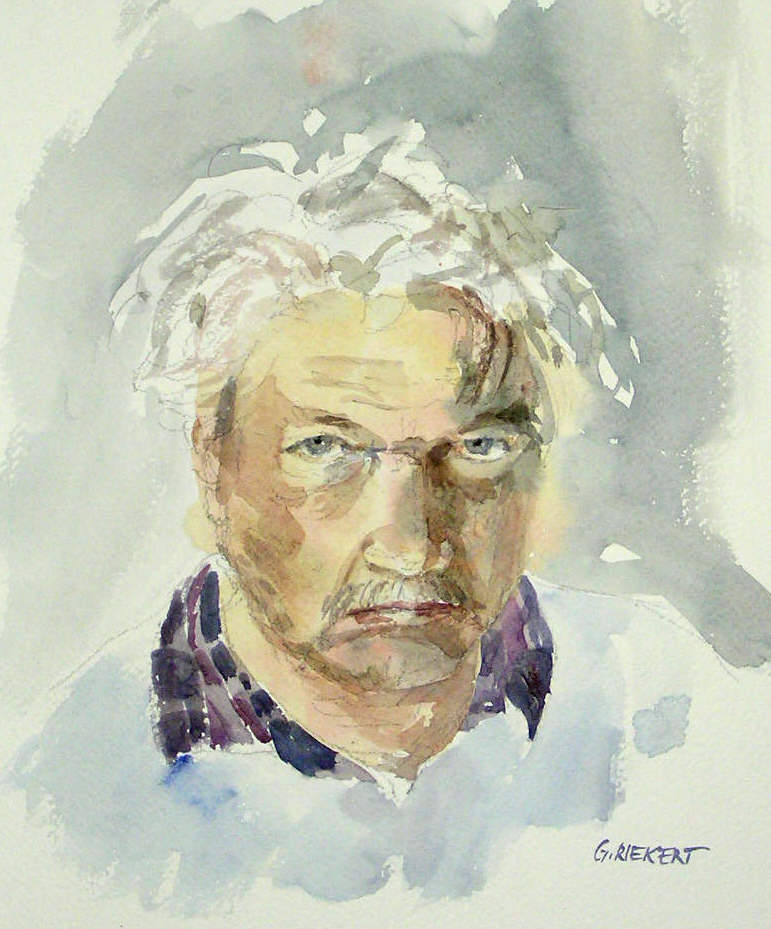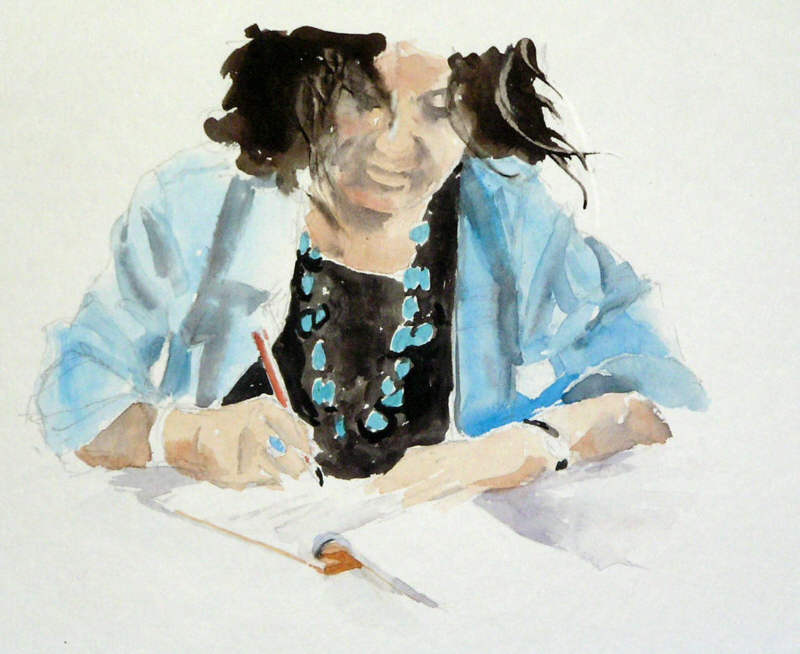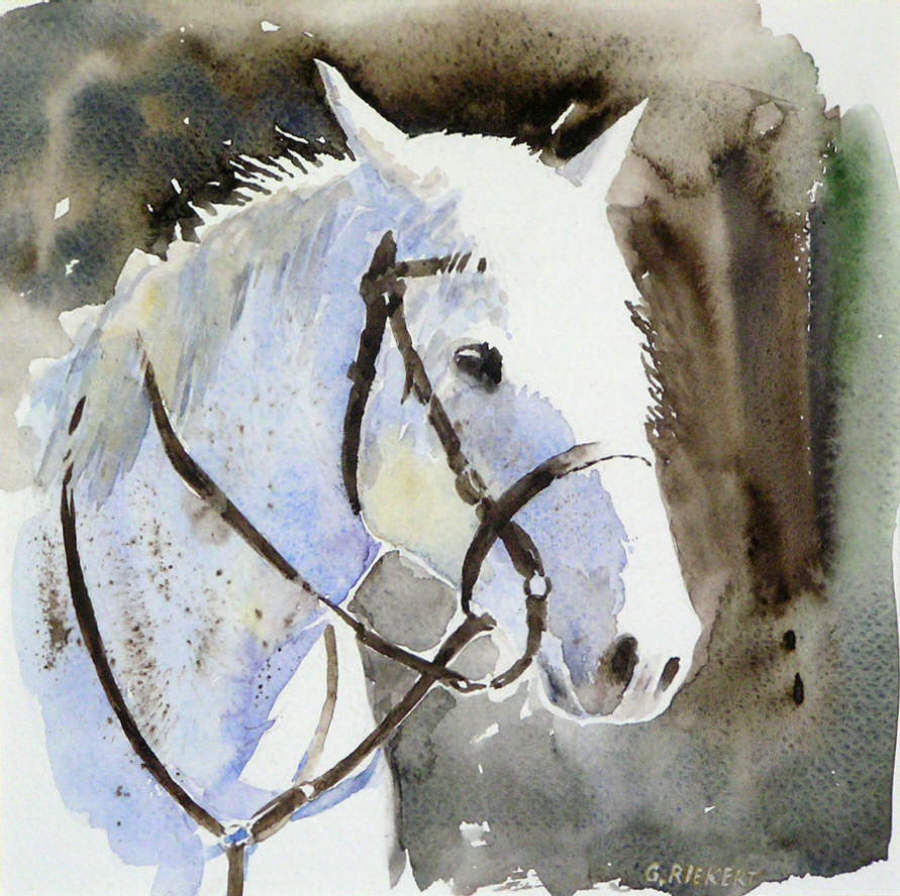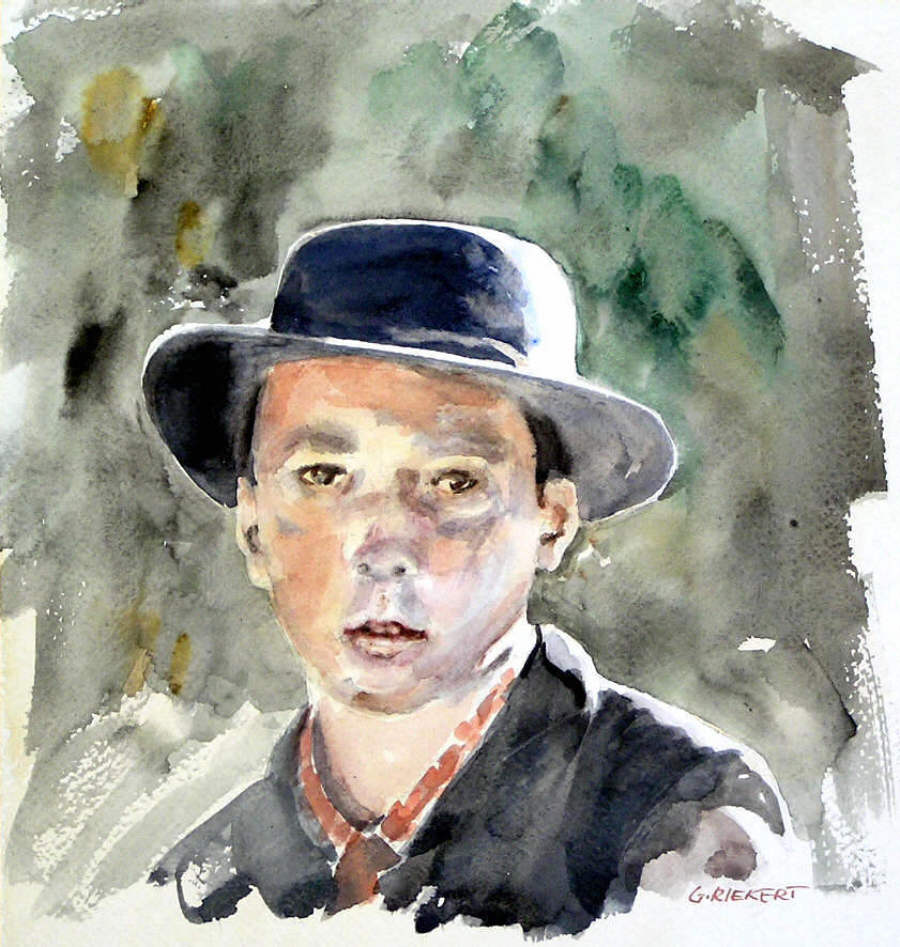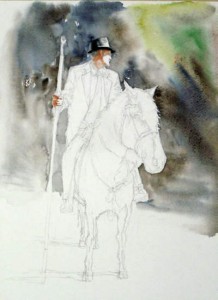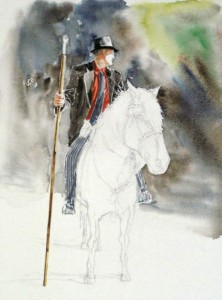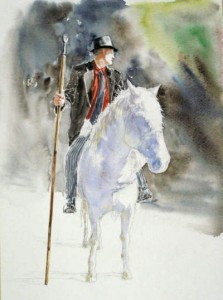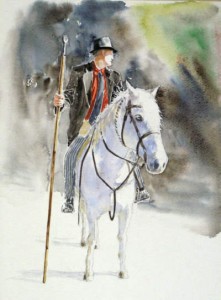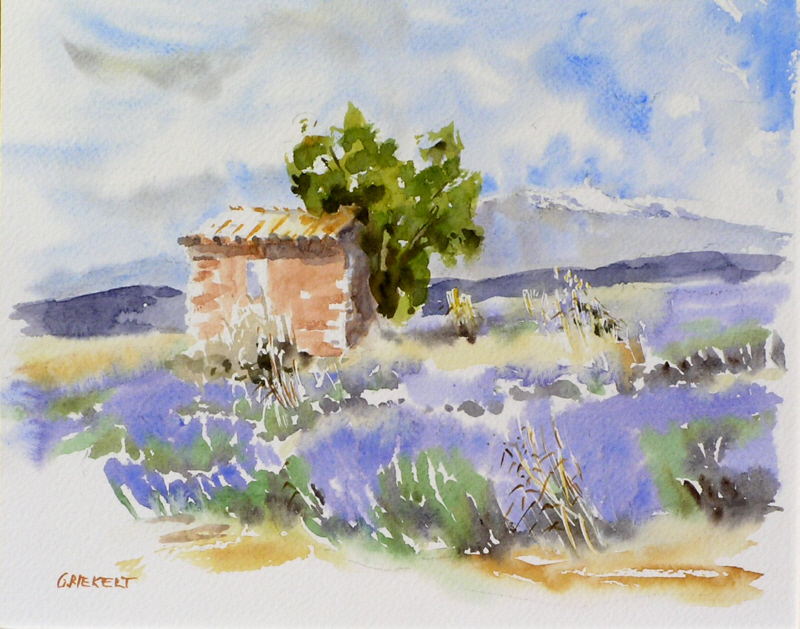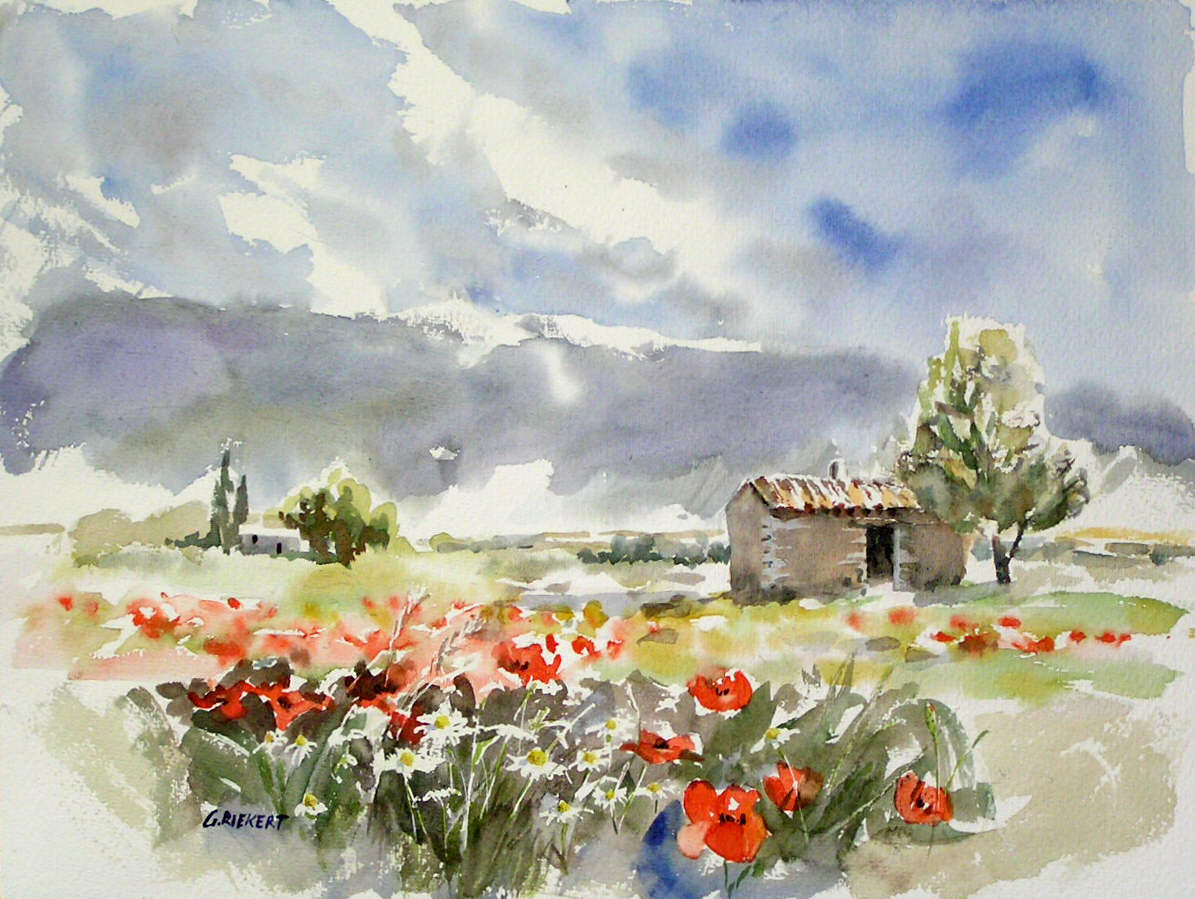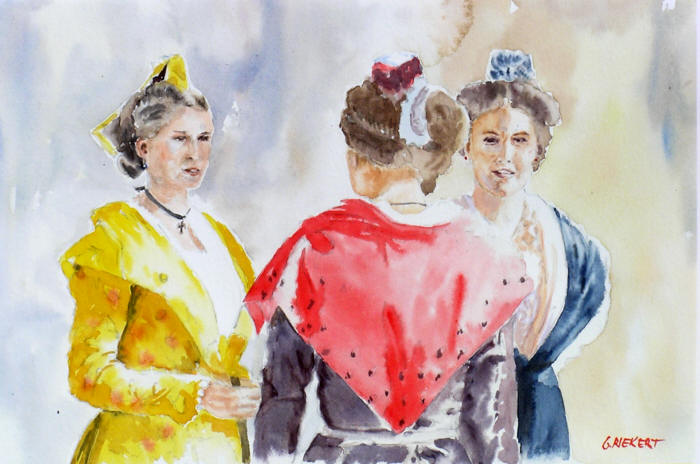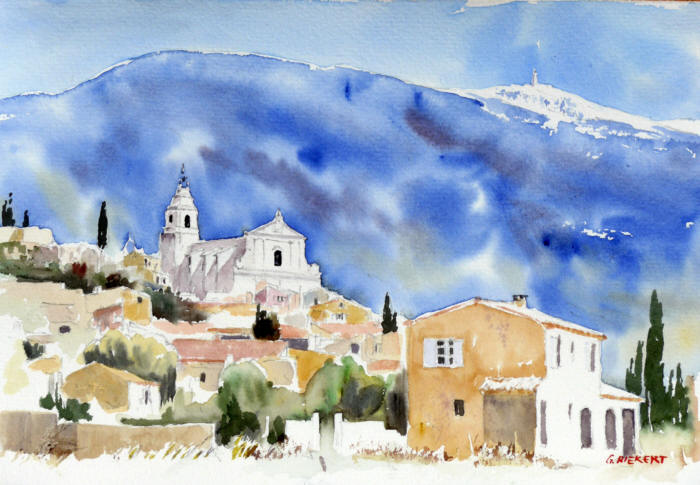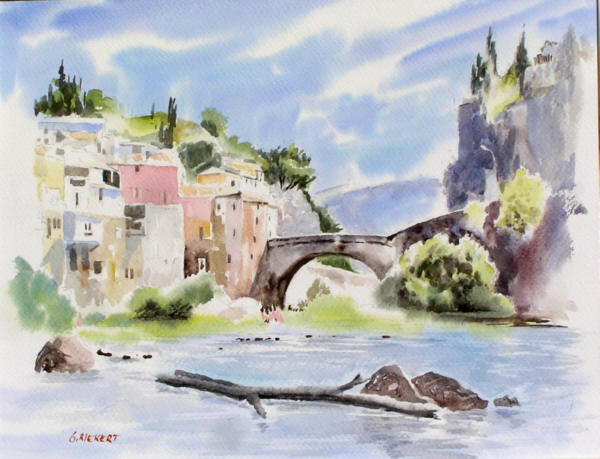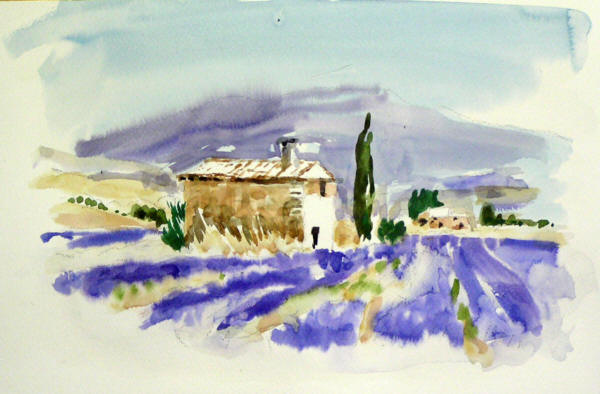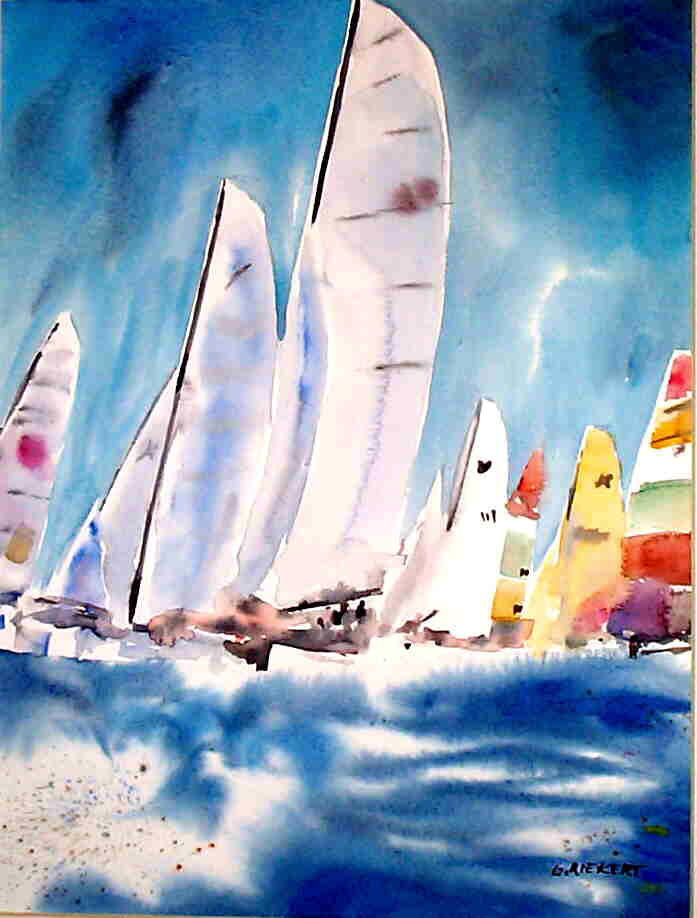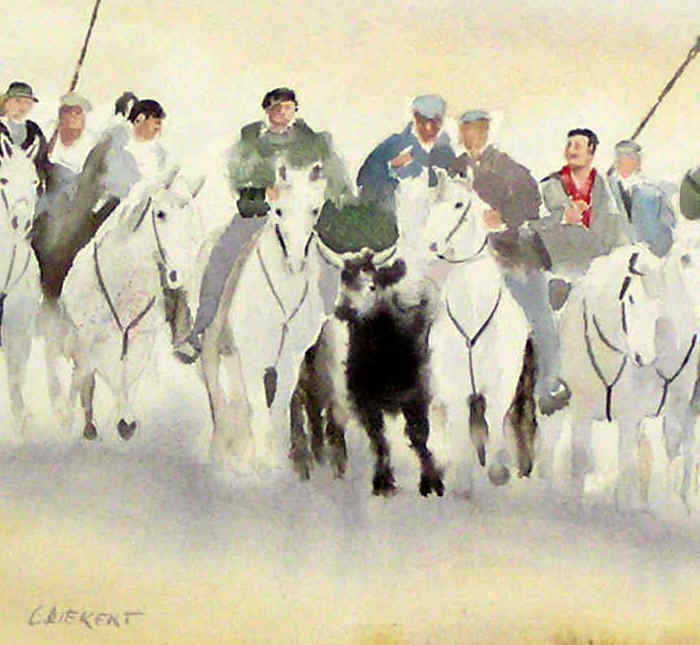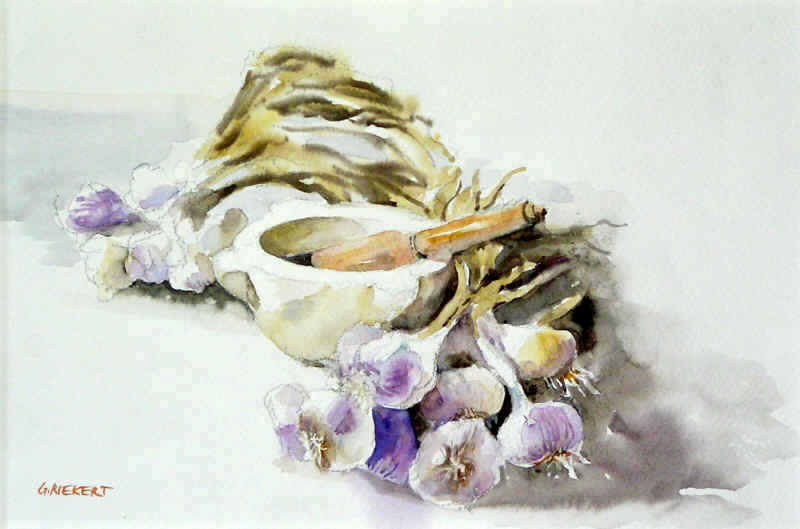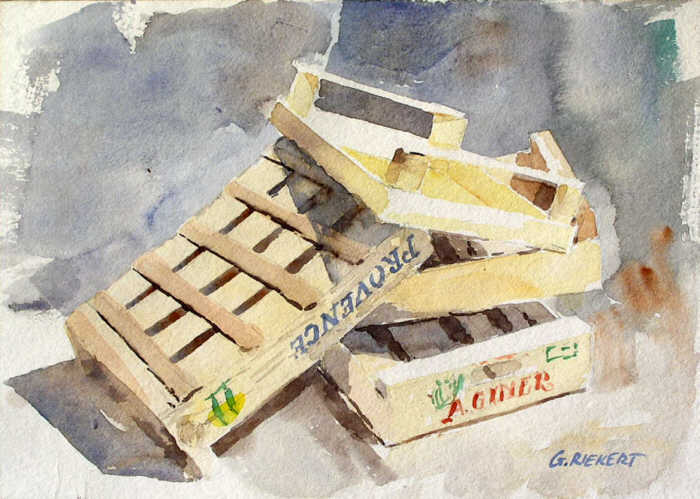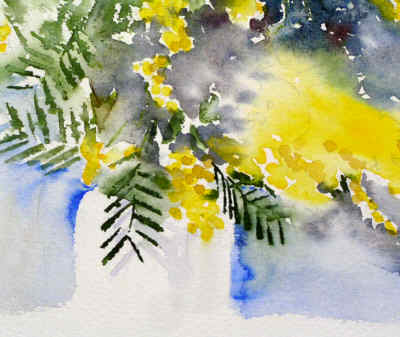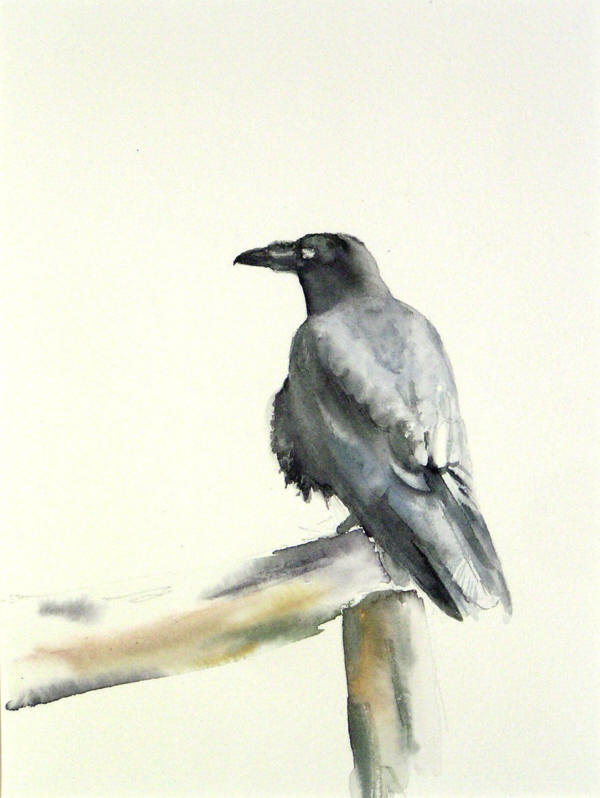Ébouriffé – scrubby – verstrubelt
27 January, 2010
Tempête de neige – Blizzard – Schneesturm
08 January, 2010
Aquarelle – watercolor on Canson Fontenay 300 g/m², 36 x 48 cm
- Le temps à Mormoiron est particulièrement hivernale depuis une semaine : brouillard, givre, neige…L’aquarelle ci-dessus essaye de rendre le sentiment de froid et du vent. J’ai peint d’abord le fond avec le bleu phtalo et outremer et un peu de terre d’ombre naturelle. Dans la peinture mouillée j’ai rajouté du sel fin qui a crée un effet tacheté. Les chiens et le personnage ont été peints avec ocre jaune et rouge indien dans le mouillé et ensuite au sec quelques contours ont été précisés. Comme modèle j’ai utilisé une photo d’un photographe français.
Question : quel est le nom du photographe qui a prise cette photo? (le premier qui donne la bonne réponse reçoit une aquarelle hivernale)
- Since one week the weather here in Mormoiron is especially hibernal: Fog, hoarfrost and snow. The watercolor painting above tries to render the feeling of cold and wind. I first painted the background with phtalo- and ultramarine blue and a little bit of raw umber. In the wet painting I sprinkled some salt to create the mottled structure. The huskies and the musher were painted with yellow ochre, Indian red and ultramarine blue on damp paper. Some contours have been defined on dry paper. The reference photo I used was taken by a French photographer.
Question: who is the author of this photo? (The first right answer gets a winter watercolor)
- Seit einer Woche ist das Wetter in Mormoiron besonders winterlich: Nebel, Raureif und Schnee. Das obige Aquarell versucht die Stimmung von Kälte und Schneesturm wiederzugeben. Zuerst malte ich den Hintergrund mit Phtalo- und Ultramarinblau und etwas Umbra natur. Auf die noch feuchte Farbe streute ich etwas Salz, um die marmorierte Struktur zu erzielen. Die Schlittenhunde und der Musher wurden mit Ocker, Caput mortuum und Ultramarin auf feuchtes Papier gemalt. Nach dem Trocknen habe ich die Silhouetten hier und dort noch etwas präzisiert. Das Vorlagebild wurde von einem französischen Fotografen aufgenommen.
Quizfrage: wie heißt der Autor des Fotos, das hier als Vorlage diente? (Wer die erste richtige Antwort gibt, bekommt ein Winteraquarell)
Crayon rouge – red pencil – roter Bleistift
23 November, 2009
aquarelle – watercolor on Hahnemühle 275 g/m², 20 x 20 cm
couleurs
peau : ocre jaune + rose permanent + rouge de cadmium clair
cheveux : sépia + bleu phtalo
turquoises : vert émeraude + bleu phtalo
orange : ocre jaune + rouge de cadmium clair
chemise : suie de lampe
veste : bleu phtalo + rouge de cadmium clair
Une bonne compilation à voir ici.
colors
skin : ocre jaune + permanent rose + Cadmium red light
hair : sepia + phtaloblue
turquoises : viridian + phtaloblue
orange: yellow ochre + Cadmium red light
shirt: lamp black
vest: phtaloblue + Cadmium red light
A nice compilation (in French) you’ll find here.
Farben
Haut: gelber Ocker + Permanentrosa + Cadmiumrot hell
Haare : Sepia + Phtaloblau
Türkise: Chromoxidgrün feurig + Phtaloblau
orange: lichter Ocker + Cadmiumrot hell
Hemd : Lampenschwarz
Weste: Phtaloblau + Cadmiumrot hell
Eine gute Zusammenstellung (auf Französisch) finden Sie hier.
Deux portraits
30 August, 2009
Gardian à cheval
02 April, 2009
Aquarelle – watercolor on Fabriano 300g/m², 33 x 24 cm
- Étude d’après photo (fête de gardians à Arles). Un bon dessin est indispensable pour se familiariser avec cheval et cavalier. Quelques croquis couleurs préalable au pinceau ne sont pas du luxe. J’ai peint d’abord le fond librement qui va contraster avec personnage et animal. Il faut mouiller le papier avant de mettre la couleur (très foncé car l’humidité va la diluer d’avantage). Ensuite j’ai peint le gardian en essayant de créer quelques contours perdus (meilleur rattachement au fond). Comme je ne voulais pas mettre beaucoup de couleur en bas de l’aquarelle j’ai simplement ébauché les ombres et laissé les traits de crayon des jambes du cheval camarguais.
- Study from reference photo (fête of the Guardians at Arles). A careful drawing is necessary to get familiar with rider and horse. Some colour studies are useful. First I loosely painted the background to contrast with the detailed person and animal. Wet the paper before adding colour (very dark, as the water will dilute the paint).Then I painted the Guardian trying to create some lost edges (better integration of the person into the background). As I did not want to put much colour in the foreground of the painting, I just painted a hint of shadow and kept the pencil lines indicating the legs of the Camargue horse.
- Studie nach Foto (fête de gardians in Arles). Eine sorgfältige Zeichnung ist unerlässlich, um sich mit Ross und Reiter vertraut zu machen. Ein paar Farbstudien vorab sind auch kein Luxus. Ich habe zuerst den Hintergrund mit freien Pinselstrichen gemalt als Kontrast zu der präziser ausgeführten Person und dem Tier. Man muss das Papier anfeuchten bevor man Farbe aufbringt (sehr dunkel, da das Wasser sie ja wieder verdünnt). Dann malte ich den Gardian und versuchte einige „verlorene Konturen“ zu erzeugen (bessere Einbindung des Subjekts in den Hintergrund). Da ich im Vordergrund des Aquarells nicht viel Farbe haben wollte, malte ich die Schatten nur andeutungsweise und liess die Bleistiftzeichnung der Beine des Pferdes stehen.
